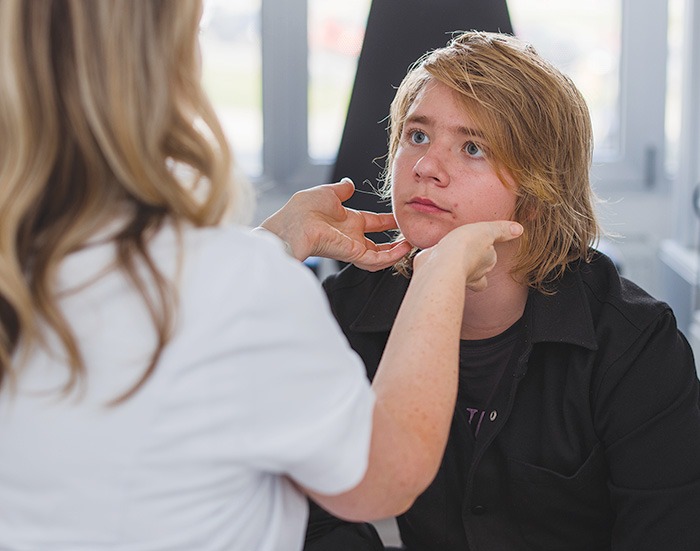The Unleashing the Potential of our Health Workforce – Scope of Practice Review final report and implementation plan is slated for delivery by October 2024.
But many states and territories are forging ahead with expanding pharmacist scope of practice in the interim.
Australian Pharmacist has rounded up some of the most recent updates.
Queensland pharmacy prescribing pilot could go permanent
Ahead of the Queensland state election next week (26 October), incumbent Premier Steven Miles and Health Minister Shannon Fentiman have vowed to make both the Community Pharmacy Scope of Practice Pilot and the Community Pharmacy Hormonal Contraception Pilot permanent if reelected.
Opposition Leader David Crisafulli has since announced intentions to expand both pilots.
Since the scope of practice pilot rolled out in April, trained pharmacists have been able to provide medication management services, autonomous prescribing for specified acute common conditions, and structured prescribing as part of a chronic disease management program.
With Queensland introducing the Community Pharmacy Hormonal Contraception Pilot, making this service permanent would bring Queensland in line with some other states and territories.
Since both pilots kicked off, hundreds of Queenslanders have benefitted from accessing care from their local pharmacy.
Queensland is a largely decentralised state, with more than half (50.7%) of Queensland’s population residing outside of Greater Brisbane.
PSA welcomes the commitment to expanding the scope of practice for pharmacists, said PSA Queensland State Manager Karen Castle MPS.
‘If the scope of practice pilots become permanent, it would have a significant positive impact on the health of Queenslanders and improve access to healthcare, particularly for rural and regional communities where accessing a GP can be challenging,’ she said.
‘Patients already see their pharmacist as a trusted healthcare professional, and this expanded scope will further enhance their role in delivering healthcare, reduce waiting times and improve patient outcomes.
‘As pharmacists expand their practice and the public becomes more aware of the broader services available, we anticipate significant growth in the uptake of services provided by pharmacists.’
Canberrans could soon access more pharmacy services
With the ACT election only days away (19 October), both ACT Labor and the Canberra Liberals have committed to expanding pharmacists’ scope of practice.
Pharmacists in the ACT have already been providing consultations for uncomplicated urinary tract infections (UTI) and resupplying OCP under the NSW pilot.
In alignment with NSW, the expanded scope will cover a broader range of common and mild conditions, including ear infections, nausea and vomiting, reflux, acne, muscle pain and wound management.
Certain chronic conditions will also be included.
While PSA ACT Branch President Olivia Collenette MPS said the services will be introduced as a trial, PSA has been advised that there’s no intention to roll back service once it has started.
‘This will be great for Canberrans, where it is the most expensive city in Australia to see a GP,’ Ms Collenette told AP.
‘We have the lowest bulk billing rates in the country and wait times [to see a doctor] are in the weeks. This is all about patient access, ensuring appropriate care is there at the time it’s needed.’
Both parties will work to ensure pharmacists can administer vaccines to patients of all ages.
PSA has been advocating for pharmacists to be able to administer all vaccines to all ages in all locations, she said.
‘Pharmacists are trusted healthcare professionals, helping the ACT maintain its above average for Australia vaccination rates,’ Ms Collenette said. ‘Patients have spoken with their feet that they like that pharmacists are providing these services, so we want to ensure they can continue to do so regardless of which vaccine/s they are after.’
Victoria’s scope of practice pilot extended
The Secretary Approval for 12-month Victorian Community Pharmacist Statewide Pilot, due to wrap up this month, was recently extended until June 2025 – ensuring all pharmacists who are already enrolled in the program continue be able to provide services during the evaluation period.
The pilot allows appropriately trained pharmacists to provide certain Schedule 4 medicines for:
- shingles
- flare-ups of mild plaque psoriasis
- uncomplicated UTI
- resupply of OCP.
Pharmacist immunisers who completed additional training are also able to administer certain travel and public health vaccines.
On 3 October, the Secretary Approval authorising pharmacist immunisers to administer approved immunisation products in Victoria was also amended.
Secretary Approvals for pharmacist immunisers were amended to include COVID-19 vaccines, with time-limited stand-alone COVID-19 vaccine Secretary Approvals revoked.
Other amendments to Secretary Approvals for pharmacist and intern pharmacist immunisers to better align with the program rules of new Commonwealth-funded programs include:
- amending the age of eligibility to receive intern/pharmacist administered vaccines to 5 years and older
- authorising pharmacist immunisers to administer approved vaccines when employed by a residential aged care home participating in Tier 2 of the Australian Government’s Aged Care On-site Pharmacist Measure.
- removal of the mandatory requirement to complete additional Japanese encephalitis and mpox eLearning training modules prior to vaccine administration from Secretary Approvals for all immunisers. The modules are still available for immunisers for professional development purposes.
Western Australia commits to an expanded role for community pharmacists
Following the success of the UTI treatment and OCP programs that were introduced in WA last year, the Cook government announced it would expand pharmacists’ scope of practice – engaging PSA and other stakeholders to ensure the program is appropriately scoped and evaluated.
With the design, development and implementation occurring over a 2-year period, pharmacists should be able to deliver more services by the beginning of 2027.
‘Expanding the role of community pharmacy is [a] practical and common-sense policy that will ease cost of living pressures for people across the State,’ said WA Health Minister Amber-Jade Sanderson.
‘Ultimately, this approach will enhance primary care, freeing up time for GPs to support more complex patients in need of more urgent care.’
New South Wales significantly expands pharmacists’ scope of practice
In early September, NSW Health Minister Ryan Park announced sweeping scope of practice changes – both permanently expanding OCP services and enabling pharmacists to treat more common ailments (outlined above).
‘Giving our patients the option to access contraception through skilled community pharmacists is an important step in making reproductive care more accessible to women across the state,’ said PSA NSW President Luke Kelly FPS.
‘It is encouraging to see pharmacists’ accessibility and skills leveraged to provide NSW residents with more timely and accessible health care for a broader range of conditions.
‘The recognition of Queensland trained pharmacists being able to offer these services in NSW is a positive step. National harmonisation of training requirements will cut red tape and enable more pharmacists to deliver essential services to their communities.’
South Australia and the Northern Territory set to improve healthcare access
In an announcement made on World Pharmacists Day (25 September), South Australian Health Minister Chris Picton unveiled plans to expand scope of practice for pharmacists who undertake postgraduate training to treat skin conditions, ear infections, nausea and vomiting, gastro-oesophageal reflux, musculoskeletal pain and rhinitis, and provide wound management services by 2026.
Similar to other jurisdictions, the decision to further expand pharmacists’ scope was made following positive results from previous services, with over 4,130 women receiving treatment for uncomplicated UTI – leading to a 21% reduction in emergency department visits in metropolitan areas.
‘Pharmacists are successfully supporting patients with treatment for UTIs, resupplying of [OCP] and Mental Health First Aid,’ said PSA South Australia and Northern Territory President Dr Manya Angley FPS, who reaffirmed PSA’s commitment to providing education for pharmacists as scope of practice expands.
‘South Australian health consumers need pharmacists delivering services through the Pharmacy Scope of Practice program. They need all pharmacists doing more to support safe and effective use of medicines and greater access to care when and where they need it.’
Meanwhile, after the Country Liberal Party (CLP) was elected in the Northern Territory in August, plans to fulfil an election promise to expand pharmacists’ scope of practice have been outlined.
Services for 21 conditions are anticipated to become permanent by August 2025, including:
- treatment for uncomplicated UTI
- asthma
- wound care
- otitis externa.
‘PSA welcomes the CLP’s commitment to expand pharmacist services … We want to see pharmacists empowered to do more for their patients and our Territorians, and look forward to the release of NT Labor’s health policy in due course,’ said PSA NT/SA Vice-President Colleen Niland in July.
‘Acknowledging the vital role GPs hold, greater access to health services through community pharmacists will free up GPs, especially during the tourist surge when there is increased demand.’



 Pharmacists have always prescribed, but they have the potential to prescribe much more
Pharmacists have always prescribed, but they have the potential to prescribe much more



 Sponsorship information
Sponsorship information


 Talking to patients who have questions
Talking to patients who have questions





